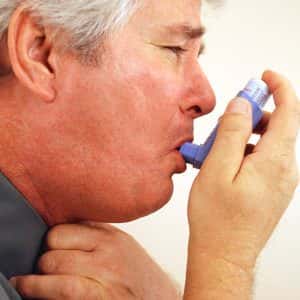
Have you become so hoarse you could barely talk? Most people have experienced laryngitis as part of a respiratory tract infection like a cold or bronchitis. But some people report that certain inhaled medications affect their voice. In particular, we have heard from a number of readers who experience hoarseness from Advair.
Can You Avoid Hoarseness from Advair?
Q. I read that some people become hoarse when taking Advair. I had this problem too. My doctor switched me over to Singulair, an oral medication, to control my asthma. My hoarseness went away, and my asthma is now under control. Perhaps this will help someone else.
Singulair as an Alternative:
A. Montelukast (Singulair) is used to treat asthma and allergies. It works differently from corticosteroids such as fluticasone (found in Advair and Flonase).
Singulair blocks inflammatory compounds called leukotrienes. Because it is not inhaled, it is much less likely to cause hoarseness. While Singulair may not be appropriate for every person with asthma, we encourage readers faced with hoarseness from Advair to discuss this possible treatment with their physicians.
Do You Have Infection-Induced Asthma?
You may want to consider another possibility. Most people don’t realize that sometimes an infection lies at the root of hard-to-treat asthma symptoms. To treat such infection-mediated asthma, doctors prescribe an antimicrobial compound that will eliminate the infection (Webley & Hahn, Respiratory Research, May 19, 2017).
Unfortunately, this is more easily said than done. The Chlamydia pneumoniae bacteria that can trigger asthma symptoms often hide deep inside lung cells. To eradicate them, people must take antibiotics such as azithromycin (Zithromax) for an extended period of time. You can learn more about the protocol for treating such infection-induced asthma from the book, A Cure for Asthma? by Dr. David Hahn. (He co-wrote the review article cited above.) People’s Pharmacy Press published this book to make the information broadly available.

